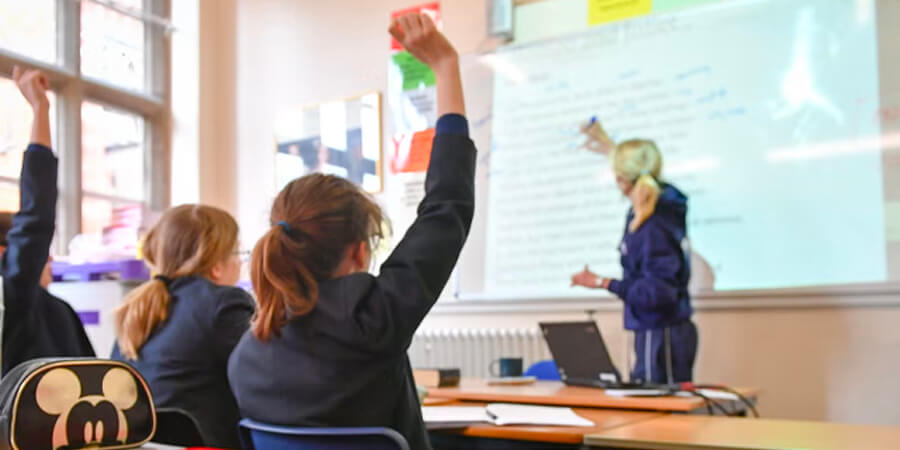In a recent report, the United Nations Educational, Scientific and Cultural Organization (UNESCO) recommended a worldwide ban on smartphones in classrooms as a measure to improve the quality of education and protect children from the perils of online bullying. Citing evidence of a connection between excessive mobile phone usage and diminished educational outcomes, UNESCO also highlighted the negative impact of prolonged screen time on children's emotional well-being.
The report cautioned against an uncritical adoption of digital technology in education and emphasized the importance of considering the "social dimension of education." While acknowledging the vast potential of the digital revolution, the agency stressed that a human-centered approach to education should always take precedence over technology-centered learning. The report warned against viewing technology as a panacea and emphasized that progress should be evaluated based on its benefits to students and teachers rather than simply on what can be technologically achieved.
Audrey Aloza, UNESCO's Director-General, underscored the need to prioritize learners' needs and support teachers, emphasizing that online connections can never replace genuine human interactions in the learning process.
UNESCO urged countries to establish clear objectives and principles to ensure that digital technology serves as a beneficial tool for students rather than a hindrance. Excessive or inappropriate use of technology, whether in the classroom or at home, has been found to be distracting, disruptive, and harmful to learning outcomes.
Many countries are taking measures to regulate digital device usage in schools. China limited the use of digital devices as teaching tools to 30% of all teaching time, with mandatory screen breaks for students. Several European countries, including France and Finland, have already banned smartphones in classrooms to address declining exam results. Italy introduced a similar ban in schools in December, while the Netherlands plans to implement restrictions in 2024.
In the United Kingdom, the topic of banning mobile phones in schools was raised in 2021, with proponents arguing it could improve student discipline. However, education unions deemed it a "distraction." Meanwhile, the Association of School and College Leaders noted that many schools already have effective mobile phone policies in place while acknowledging the practical concerns related to communication between parents and children during travel.
Schools Minister Nick Gibb suggested the use of "brick phones" as an alternative for students, allowing them to manage their time better at school.
Overall, the UNESCO report serves as a wake-up call for countries to prioritize the well-being of learners and educators in the digital age. While technology undoubtedly has its place in education, a balanced and thoughtful approach is essential in order to maximize its benefits while minimizing its potential drawbacks. By adopting policies that put students first and support teachers, nations can harness the power of digital tools to enhance learning experiences and create a safer educational environment for all.







